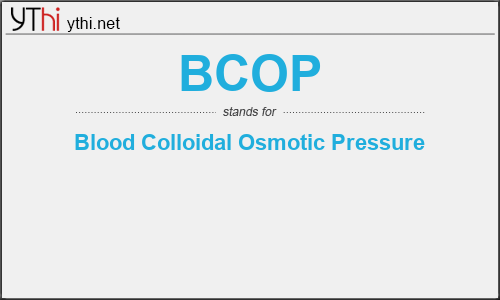What does BCOP mean? What is the full form of BCOP?
The Full Form of BCOP is Blood Colloidal Osmotic Pressure.
The pressure created by the concentration of colloidal proteins in the blood is called the blood colloidal osmotic pressure (BCOP). Its effect on capillary exchange accounts for the reabsorption of water. The plasma proteins suspended in blood cannot move across the semipermeable capillary cell membrane, and so they remain in the plasma. As a result, blood has a higher colloidal concentration and lower water concentration than tissue fluid. It therefore attracts water. We can also say that the BCOP is higher than the interstitial fluid colloidal osmotic pressure (IFCOP), which is always very low because interstitial fluid contains few proteins. Thus, water is drawn from the tissue fluid back into the capillary, carrying dissolved molecules with it. This difference in colloidal osmotic pressure accounts for reabsorption.
BCOP
means
Blood Colloidal Osmotic Pressure![]()
Translate Blood Colloidal Osmotic Pressure to other language.


Leave a Reply
You must be logged in to post a comment.